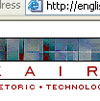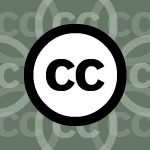        |
|
||||
OverviewA brief, sporadic overview of the last ten years in Kairos on Intellectual PropertyWith seeming premonition, in the first issue of Kairos (Spring 1996), Lunsford et. al discussed issues of ownership in the writing classroom, covering topics such as collaboration and copyright/ownership. The authors predicted that “the commodification everywhere apparent in late capitalist economy is at work on the Net and looks to be increasing.” They questioned who will eventually own and control reading and writing. Remember, 1996 was before most of the digital copyright and filesharing court cases that I explore in the webtext occurred and was also before the Digital Media Copyright Act (DMCA) was passed. This was a pre-Napster/Grokster and pre-Lawrence-Lessig era. (Lessig [1999, 2004] argues that we need an entire change in the copyright regime, a change where instead of every fixed, original work being automatically copyrighted, one should have to "opt-in" to copyright protection.) So, before Stanford Law School produced intellectual property (IP) pioneer Lawrence Lessig, these authors in Kairos asked: Will writing be allowed? At the same time, 1996 was the beginning of what now is viewed as a copyright “battle,” “war,” and “fight” (DeVoss & Porter, 2006; Yu, 2004). 1996 was the year CONFU (Conference on Fair Use) negotiations for The Fair Use Guidelines for Educational Multimedia were finally abandoned. Abandonment of negotiations by key stakeholders often signals war. What I mean by this is that the stakeholders in the current struggle to have a copyright regime that properly balances our private rights of protection and the public need to access information were unable to come to an agreement. Educators were involved in the CONFU negotiations. As I discuss in this webtext, perhaps it is time we revisited our technorhetorical political positioning in the current copyright regime and move forward to craft some type of Fair Use Guidelines that provide us with resources for teaching and composing in digital environments. Kairos’ Spring 1997 issue, Gender and Electronic Discourse, contains a webtext by Dean Rehberger that alludes to major, future IP-Internet issues regarding the control and dissemination of information in his “The Censoring of Project #17: Hypertext Bodies and Censorship." In this piece, Rehberger critically notes: “From Neil Postman's Technopoly to Clifford Stoll's Silicon Snake Oil, the Internet is pictured as a place of hucksters, harlots, and confidence men that can destroy an already degraded and fragile American democracy.” The discourse Rehberger writes of certainly informed and reflected Jack Valenti’s (DMCA proponent, former Chairman and Chief Executive Officer of the Motion Picture Association) extreme claim that movie copiers weren’t just pirates, but were also terrorists. In a House Judiciary Committee hearing on “International Copyright Piracy: Links to Organized Crime and Terrorism,” Valenti (2003) said, “while piracy has been a sad fact intruding into our lives since the blossoming of the home video entertainment business a quarter century ago, the forms of digital piracy we now face raise serious, new challenge.” In Spring 1998 Kairos published the issue: Copyright, Plagiarism, and Intellectual Property, the same year the Digital Millennium Copyright Act (DMCA) was enacted. The DMCA made it illegal to circumvent anti-piracy technology. In that issue of Kairos, TyAnna Herrington argues IP is not “Property,” emphasizing the importance of free speech interests in preserving fair use; in an interview with Johndan Johnson-Eilola, he defines IP as a social and economic construct that exists to maximize profits for capitalists. In Heterotopic Spaces Online: A New Paradigm for Academic Scholarship and Publication, Jeffrey R. Galin and Joan Latchaw (1997) explore how the World Wide Web changes "the ways that authors, publishers, vendors and archivists view the production, distribution, and management of new academic knowledge." They ask whether a paradigm shift has occurred, or whether in 1998 we were still in a transitional period for changing views of production, distribution, and management of new academic knowledge. Since 1998, it is an understatement to say that a lot has happened in the place where intellectual property infrastructure intersects our practice and thinking. Composition/rhetoric scholars have generally addressed the increasingly complicated IP issues that permeate our practices (Brockmann, 1998, 1999; CWRU Authorship Collective, 2003; DeVoss & Porter, 2006; Durack, 1997, 2001; Gurak, 2005; Gurak & Johnson-Eilola, 1998; Herrington, 1997, 1998; Johnson-Eilola, 1997; Logie, 2005; Lunsford, 1999, 2000; Porter, 2005). The robust annual workshop offered by the IP caucus at the Conference on College Composition and Communication (CCCC) also addresses IP issues as they impact us. In Douglas Hesse's 2005 CCCC Chair's Address, he asks: Who Owns Writing? To ask who owns writing is to ask about "property rights" as well as "Who owns the content and pedagogy of composition." By engaging in research and writing that address the impact of legal infrastructure on our practices is to affirm our "ownership" and expertise in writing. The scholarship I have listed above reflects how the legal infrastructure has shaped our writing and pedagogy practices, and how we have taken changes in this infrastructure into account in our teaching and research. But the changes that have occurred since Kairos' inception might be best noted by the total shift in positioning by many researchers and teachers as illustrated in the recent Kairos piece "Why Teach Digital Writing?" by the Writing in Digital Environments (WIDE) Research Center Collective (2005). As if in direct follow-up to Galin and Latchaw's notion of shifting paradigms, this piece outlines the paradigm shift that has occurred, one that reconfigures composition pedagogy in light of changing notions of production, distribution, and knowledge management pursuant to writing in digital spaces. The WIDE Research Collective notes:
It seems to me that the attention we must give to details, affordances, and infrastructural possibilities has everything to do with the content that flows through digital spaces, the writing, and writing-as-intellectual property. Our intellectual property regime is an influence within the institutional and political arrangements, the infrastructure, that points to "the presence and operations of standards and classifications, which lean heavily on all writing practices" (DeVoss, Cushman, & Grabill, 2005, p. 17). The question is, how did we get where we are? What's happened between Kairos' inception in 1996 and today to cause the paradigm shift that Galin and Latchaw predicted and that the WIDE Collective describes? Obviously, I cannot set forth an exhaustive exposition on everything that's happened, but what I can do is focus on the legal infrastructure and happenings that have tacitly and implicitly shaped our practice. To this end I highlight the major legal cases and illustrate how each case set up a rhetorical construct that allowed the next case to happen, leaving us where we are now. I highlight the provisions of the DMCA and how that law might impact our composing and publication practices. I discuss the failed CONFU negotiations and suggest revisiting this important issue. And in light of all that's happened, I try to connect Kairos and argue why this online journal is the place we should meet to address the issues of IP that impact our practices as technorhetoricians. |
               |